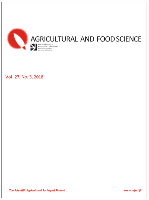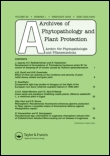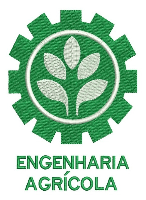
JOURNAL OF STORED PRODUCTS RESEARCH
metrics 2024
Transforming Knowledge into Sustainable Solutions
Introduction
JOURNAL OF STORED PRODUCTS RESEARCH, published by PERGAMON-ELSEVIER SCIENCE LTD, is a leading academic journal in the fields of Agronomy and Crop Science, Food Science, Horticulture, and Insect Science. With ISSN 0022-474X and E-ISSN 1879-1212, this journal has been a cornerstone of research since its inception in 1965 and continues to contribute valuable insights into the science of stored products through its rigorous peer-reviewed articles. Recognized in 2023 with top rankings in various categories (Q1 in Agronomy and Crop Science, and Horticulture; Q2 in Food Science), its commitment to addressing the challenges in the preservation and quality of stored products is reflected in its substantial impact factor and robust Scopus rankings. Although it does not operate under Open Access, the journal remains crucial for professionals and researchers seeking to advance their understanding and application of stored product science. Located in the United Kingdom, at The Boulevard, Langford Lane, Kidlington, Oxford OX5 1GB, England, the journal stands as a pivotal resource for those committed to enhancing agricultural sustainability and food security.
Metrics 2024
 0.65
0.65 2.70
2.70 2.70
2.70 90
90Metrics History
Rank 2024
Scopus
IF (Web Of Science)
JCI (Web Of Science)
Quartile History
Similar Journals

AGRICULTURAL AND FOOD SCIENCE
Innovating food science for global food security.AGRICULTURAL AND FOOD SCIENCE is a prestigious journal published by the SCIENTIFIC AGRICULTURAL SOCIETY OF FINLAND, dedicated to advancing knowledge in the fields of agricultural and food sciences. With an ISSN of 1459-6067 and E-ISSN of 1795-1895, this open-access journal has been providing valuable insights and research findings since its inception in 2002. As of 2023, it holds a Q3 ranking in Food Science and is positioned at the 46th percentile within its Scopus category, ranking 210 out of 389 journals in Agricultural and Biological Sciences – Food Science. The journal features contributions from a global network of researchers, covering various topics including sustainable agricultural practices, food safety, and innovative food technologies. Based in Finland, the journal serves as an essential platform for scholars, professionals, and students who are committed to enhancing food security and agricultural productivity through rigorous scientific research. The convergence of interdisciplinary studies from 2004 to 2024 marks a critical evolution in the scope of agricultural and food research, making this journal a vital resource for anyone involved in these dynamic fields.

ARCHIVES OF PHYTOPATHOLOGY AND PLANT PROTECTION
Fostering Collaboration for a Healthier Plant FutureArchives of Phytopathology and Plant Protection, published by Taylor & Francis Ltd, stands as a pivotal platform in the field of agronomy and crop science since its inception in 1974. With an ISSN of 0323-5408 and E-ISSN of 1477-2906, this journal is dedicated to publishing high-quality, peer-reviewed research that addresses contemporary challenges in plant pathology and protection. As a Q3 ranked journal in its category with Scopus Rank #210/406, it serves a vital role in disseminating practical solutions and innovative discoveries to enhance agricultural productivity and sustainability. The journal fosters a rich exchange of ideas among researchers, professionals, and students, empowering them to contribute to the advancement of the agronomy and biological sciences. Despite being traditionally subscription-based, the journal's commitment to comprehensive and rigorous research makes it an essential resource for anyone invested in the future of plant health and agricultural innovation.

Erwerbs-Obstbau
Empowering Agricultural Practices with Research.Erwerbs-Obstbau is a pivotal journal dedicated to the field of horticulture, focusing on research concerning the cultivation and production of fruit. Published by Springer in Germany, this journal plays a crucial role in disseminating innovative findings and advancing the knowledge base within the agricultural and biological sciences landscape. With an impact factor that places it in the Q3 category of horticultural journals, it ranks #68 out of 115 in its field according to Scopus, demonstrating its relevance and contribution to ongoing debates and advancements in horticulture practices. Researchers, professionals, and students benefit from the insights and developments shared in its pages, as the journal has been successfully converging data and insights since its inception in 1983, including continuous contributions from 1996 to the present. Although the journal currently does not offer Open Access, its comprehensive articles are invaluable for anyone invested in the science of fruit cultivation and production.

JOURNAL OF FOOD PROTECTION
Driving excellence in food protection science.JOURNAL OF FOOD PROTECTION is a prominent academic journal published by Elsevier, dedicated to the field of Food Science and Microbiology. With an ISSN of 0362-028X and an E-ISSN of 1944-9097, it serves as a vital resource for researchers, professionals, and students interested in the microbiological aspects of food safety and quality. Since its inception, the journal has evolved significantly, with coverage spanning from 1977 to the present, reflecting its long-standing commitment to advancing knowledge in this critical area. Recognized for its rigorous peer-reviewed research, the journal boasts a commendable impact factor and ranks in the second quartile in Food Science and the third quartile in Microbiology according to 2023 assessments. Its Scopus ranking also highlights its relevance, with significant placements in both Agricultural and Biological Sciences and Immunology and Microbiology. The JOURNAL OF FOOD PROTECTION is an essential platform for disseminating pioneering studies that address contemporary challenges facing the food industry and public health, making it an indispensable resource in the quest for food safety and innovation.

Scientific Papers-Series B-Horticulture
Pioneering Sustainable Practices Through Open Access Research.Scientific Papers-Series B-Horticulture is a distinguished open-access journal published by the University of Agronomic Sciences and Veterinary Medicine Bucharest. With its ISSN 2285-5653 and E-ISSN 2286-1580, this journal has been accessible to the global research community since 2002, ensuring that vital horticultural research reaches a wide audience without barriers. Positioned at the forefront of the horticultural sciences, the journal serves as a platform for original research, reviews, and innovations pertaining to horticultural practices, plant physiology, and sustainable agriculture. Its contributions are not just significant in Romania but also resonate through the international scientific community, helping to address pressing agricultural challenges. The office located at 59 Marasti Boulevard, District 1, Bucharest 011464, Romania, symbolizes its commitment to advancing horticultural knowledge and fostering collaboration among researchers, professionals, and students alike. With no current H-index data, the journal invites continued contributions to enhance its visibility and impact in the field.

JOURNAL OF PESTICIDE SCIENCE
Exploring the intersection of toxicology and pest management.JOURNAL OF PESTICIDE SCIENCE, published by the PESTICIDE SCI SOC JAPAN, serves as a crucial conduit for scientific discourse in the fields of pesticide science, toxicology, and insect science. Since its inception in 1975 and now an Open Access journal since 2020, it aims to disseminate high-quality research findings, reviews, and innovative methods, directly supporting advancements in both agricultural sustainability and public health. With an ISSN of 1348-589X, the journal currently holds a Q3 ranking for Health, Toxicology and Mutagenesis, and a commendable Q2 rank in Insect Science—a testament to its relevance and impact within the scientific community. As of 2023, it is recognized in Scopus with notable rankings in various categories, emphasizing its significance among peers. The journal is headquartered at TOKYO UNIV AGR DEPT OF AGR CHEM, TOKYO, JAPAN, and remains committed to fostering collaboration and promoting vital research that addresses the challenges posed by pesticide use. Researchers, professionals, and students alike are encouraged to engage with this essential resource, contributing to the ongoing dialogue regarding pest management and environmental health.

CABI Agriculture & Bioscience
Fostering impactful findings for a sustainable future.CABI Agriculture & Bioscience is an esteemed international journal published by SpringerNature, dedicated to advancing the fields of Agricultural and Biological Sciences, Animal Science, and Horticulture. With a strong focus on promoting Open Access research since 2020, this journal aims to disseminate scientific knowledge and innovative findings that contribute to sustainable agricultural practices and bioscience advancements. Situated in the United Kingdom, it has rapidly established itself as a premier platform, achieving impressive Q1 rankings in multiple categories, including Agricultural and Biological Sciences and Horticulture, as well as being among the top tier in Food Science. Its exceptional standing—reflected in its Scopus rankings, where it ranks in the 88th and 86th percentiles in key fields—underscores its importance to researchers, professionals, and students alike, fostering an environment for impactful collaboration and growth in the biosciences. By offering Open Access options, CABI Agriculture & Bioscience ensures that vital research is available to a broad audience, facilitating increased visibility and engagement within the global scientific community.

PHILIPPINE AGRICULTURAL SCIENTIST
Empowering Research, Transforming Agriculture.PHILIPPINE AGRICULTURAL SCIENTIST is a pioneering journal published by the University of the Philippines Los Baños, dedicated to advancing the fields of Agronomy, Crop Science, Animal Science, and Biotechnology. With an ISSN of 0031-7454, this esteemed journal provides a vital platform for researchers and practitioners focusing on agricultural innovations and practices in the Philippines and beyond. With a robust history dating back to 1996 and continuing through 2024, the journal operates within the Q4 quartile, reflecting its potential for growth and impactful contributions in its categories. Despite currently being positioned in the lower ranks, it serves as an essential publishing venue for nascent studies and localized research, contributing to the agricultural discourse. The journal fosters a collaborative research environment, encouraging submissions from both emerging scholars and seasoned experts, making it a valuable resource for students, professionals, and researchers engaged in the agricultural sciences. While it currently does not offer open access, it plays a crucial role in disseminating vital knowledge aimed at enhancing agricultural practices in the region.

Engenharia Agricola
Transforming agricultural landscapes with cutting-edge research.Engenharia Agricola, published by the SOC BRASIL ENGENHARIA AGRICOLA, is a crucial open-access journal that has been at the forefront of agricultural engineering research since its inception in 1981. With an E-ISSN of 1809-4430 and an ISSN of 0100-6916, this journal stands out in the field by providing a platform for disseminating innovative studies and advancements in agricultural practices and technologies. Based in Brazil, the journal emphasizes global perspectives in agricultural and biological sciences, currently positioned in the Q3 quartile of its category, as recognized in the 2023 Scopus Ranks, where it ranks 97 out of 193 publications. Researchers, professionals, and students can access a plethora of high-quality articles that contribute to sustainable agronomy, agricultural mechanics, and resource efficiency across various environments, with open access since 2004, ensuring that critical knowledge is readily available to all stakeholders in the field.

Revista de la Facultad de Agronomia de la Universidad del Zulia
Advancing Agronomy: Bridging Research and PracticeWelcome to the Revista de la Facultad de Agronomia de la Universidad del Zulia, a key publication in the fields of Agronomy, Animal Science, Food Science, and Plant Science. Published by the Facultad de Agronomía, Universidad del Zulia, this journal aims to foster academic dialogue and disseminate impactful research that advances knowledge and practice within these disciplines. Operating under the ISSN 0378-7818 and E-ISSN 2477-9407, this journal offers a platform for both emerging and established scholars to share their discoveries and innovations. Despite its challenges, as reflected in its Q4 ranking across multiple categories in 2023, it remains a vital resource for the Venezuelan scientific community and beyond. Readers will benefit from a diverse array of studies and discussions that address contemporary issues in agriculture and related fields, helping inform best practices and policy. Engage with cutting-edge research from Venezuela and contribute to the development of agronomic sciences in the region.